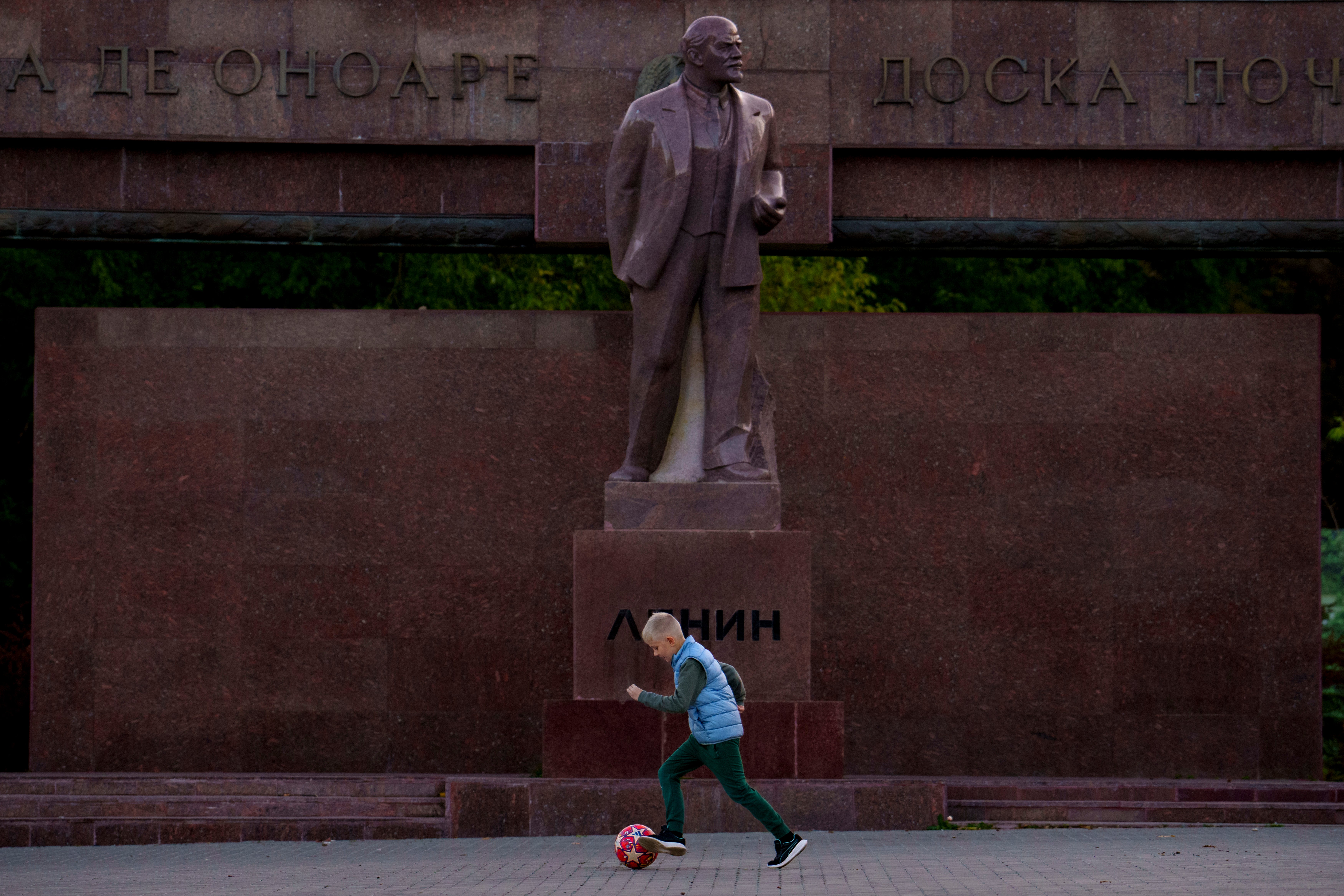The election overshadowed by fraud and intimidation that could help Putin
Moldovans are casting votes in a decisive runoff that pits pro-Western incumbent Maia Sandu against Russia-friendly former prosecutor general Alexandr Stoianoglo

Your support helps us to tell the story
From reproductive rights to climate change to Big Tech, The Independent is on the ground when the story is developing. Whether it's investigating the financials of Elon Musk's pro-Trump PAC or producing our latest documentary, 'The A Word', which shines a light on the American women fighting for reproductive rights, we know how important it is to parse out the facts from the messaging.
At such a critical moment in US history, we need reporters on the ground. Your donation allows us to keep sending journalists to speak to both sides of the story.
The Independent is trusted by Americans across the entire political spectrum. And unlike many other quality news outlets, we choose not to lock Americans out of our reporting and analysis with paywalls. We believe quality journalism should be available to everyone, paid for by those who can afford it.
Your support makes all the difference.Pro-Western incumbent Maia Sandu is pitted against a Russia-friendly opponent for leadership of Moldova – and citizens are casting votes in a decisive presidential runoff on Sunday as ongoing claims of voter fraud and intimidation threaten democracy in the European Union candidate country.
In the first round held Oct. 20, Sandu obtained 42% of the ballot but failed to win an outright majority. She will face Alexandr Stoianoglo, a former prosecutor general, who outperformed polls in the first round with almost 26% of the vote. Polls opened Sunday at 7 a.m. local time (0500 GMT) and will close at 9 p.m. (1900 GMT).
A poll released by research company iData indicates a tight race that leans toward a narrow Sandu victory, an outcome that might rely on Moldova’s large diaspora. The presidential role carries significant powers in areas such as foreign policy and national security and has a four-year term.
Moldova's diaspora played a key role in a nationwide referendum also held on Oct. 20, when a narrow majority of 50.35% voted in favor of securing Moldova's path toward EU membership. But the results of the ballots including Sunday's vote have been overshadowed by allegations of a major vote-buying scheme and voter intimidation.
Instead of winning the overwhelming support that Sandu had hoped, the results in both races exposed Moldova’s judiciary as unable to adequately protect the democratic process.
On Friday, Moldova’s Prime Minister Dorin Recean said that people throughout the country were receiving “anonymous death threats via phone calls” in what he called “an extreme attack” to scare voters in the former Soviet republic, which has a population of about 2.5 million people.
“These acts of intimidation have only one purpose: to create panic and fear,” Recean said in a statement posted on social media. “I assure you that state institutions will ensure order and protect citizens."
In the wake of the two October votes, Moldovan law enforcement said that a vote-buying scheme was orchestrated by Ilan Shor, an exiled oligarch who lives in Russia and was convicted in absentia last year of fraud and money laundering. Shor denies any wrongdoing.
Prosecutors say $39 million was paid to more than 130,000 recipients through an internationally sanctioned Russian bank to voters between September and October. Anticorruption authorities have conducted hundreds of searches and seized over $2.7 million (2.5 million euros) in cash as they attempt to crack down.
In one case in Gagauzia, an autonomous part of Moldova where only 5% voted in favor of the EU, a physician was detained after allegedly coercing 25 residents of a home for older adults to vote for a candidate they did not choose. Police said they obtained “conclusive evidence,” including financial transfers from the same Russian bank.
On Saturday at a church in Comrat, the capital of Gagauzia, Father Vasilii told the Associated Press that he's urged people to go and vote because it's a “civic obligation” and that they do not name any candidates. “We use the goods the country offers us — light, gas,” he said. “Whether we like what the government does or not, we must go and vote. ... The church always prays for peace.”
On Thursday, prosecutors also raided a political party headquarters and said 12 people were suspected of paying voters to select a candidate in the presidential race. A criminal case was also opened in which 40 state agency employees were suspected of taking electoral bribes.
Cristian Cantir, a Moldovan associate professor of international relations at Oakland University, told the AP that whatever the outcome of the second round, it “will not deflate” geopolitical tensions. “On the contrary, I expect geopolitical polarization to be amplified by the campaign for the 2025 legislative elections,” he said.
Moldovan law enforcement needs more resources and better-trained staff working at a faster pace to tackle voter fraud, he added, to “create an environment in which anyone tempted to either buy or sell votes knows there will be clear and fast consequences."
A pro-Western government has been in power in Moldova since 2021, and a parliamentary election will be held in 2025. Moldova watchers warn that next year’s vote could be Moscow’s main target.
In the wake of Russia’s invasion of Ukraine in 2022, Moldova applied to join the EU. It was granted candidate status in June of that year, and in summer 2024, Brussels agreed to start membership negotiations. The sharp Westward shift irked Moscow and significantly soured relations with Chisinau.
Since then, Moldovan authorities have repeatedly accused Russia of waging a vast “hybrid war,” from sprawling disinformation campaigns to protests by pro-Russia parties to vote-buying schemes that undermine countrywide elections. Russia has denied it is meddling.
——
Stephen McGrath reported from Bucharest, Romania; Nicolae Dumitrache from Comrat, Moldova.